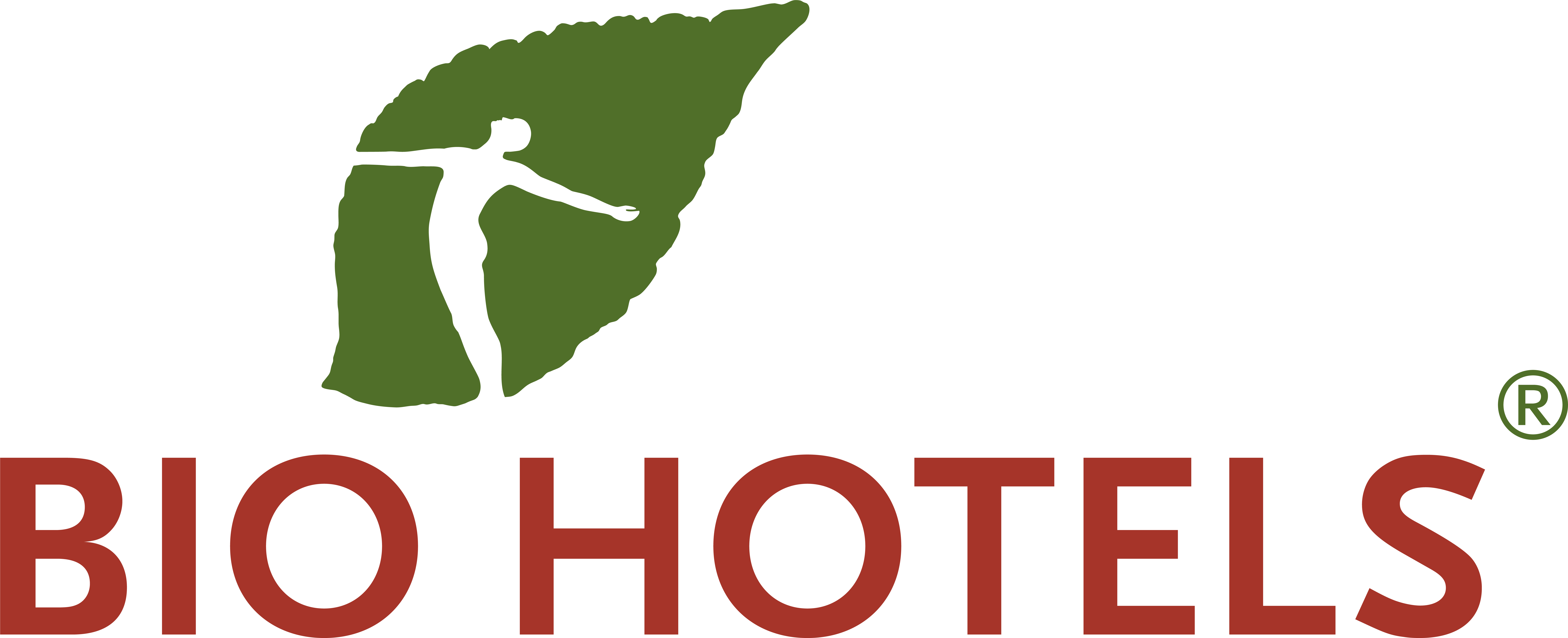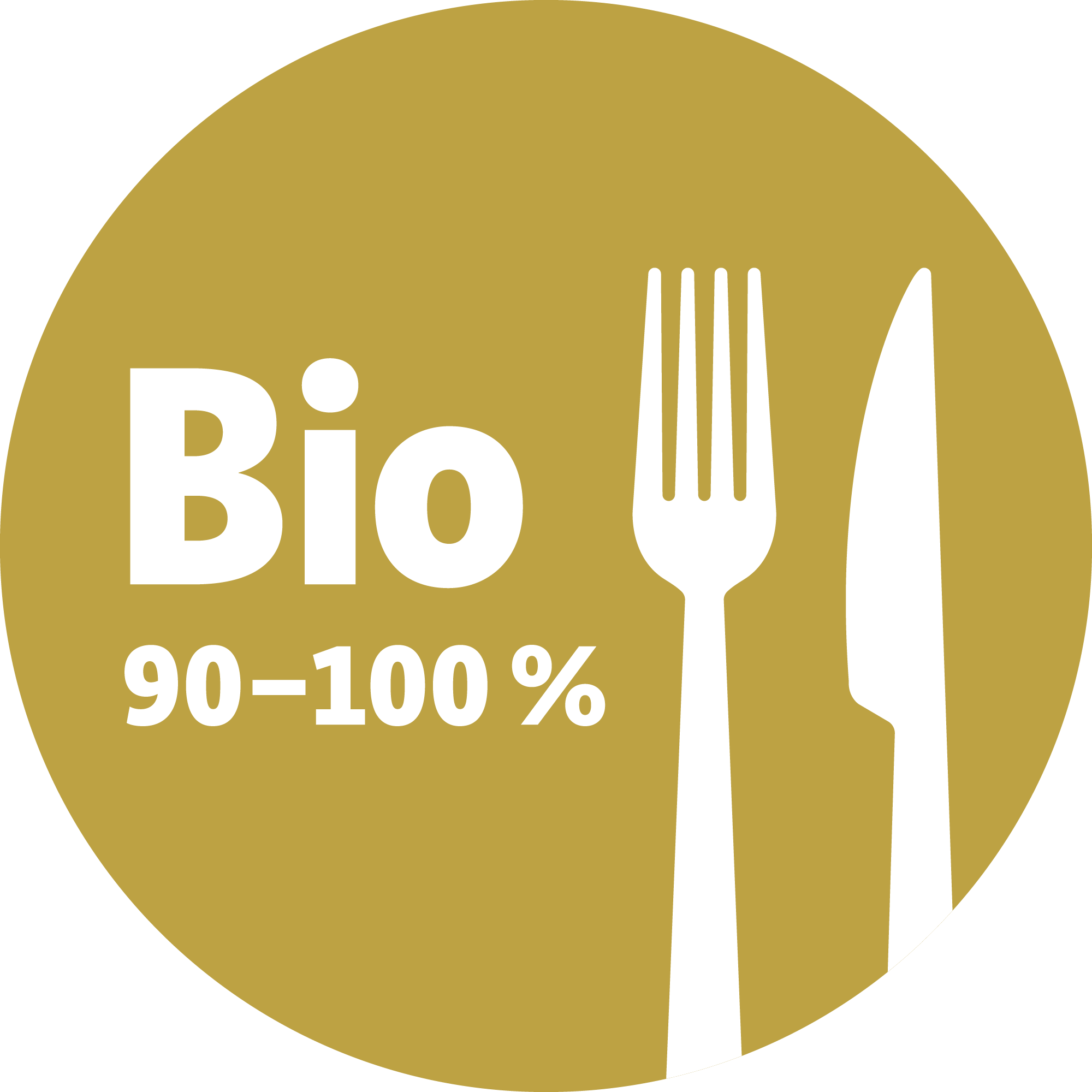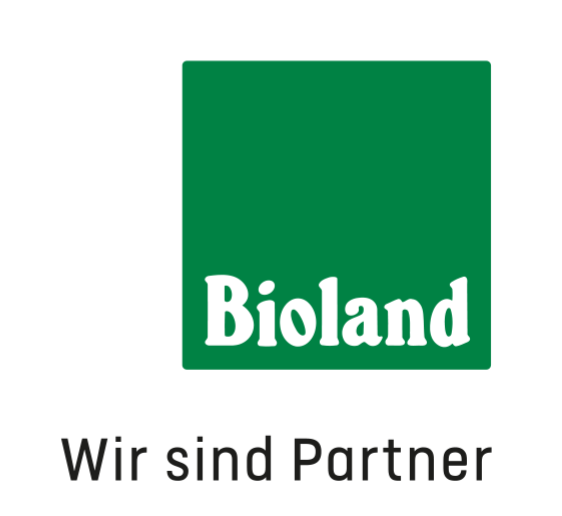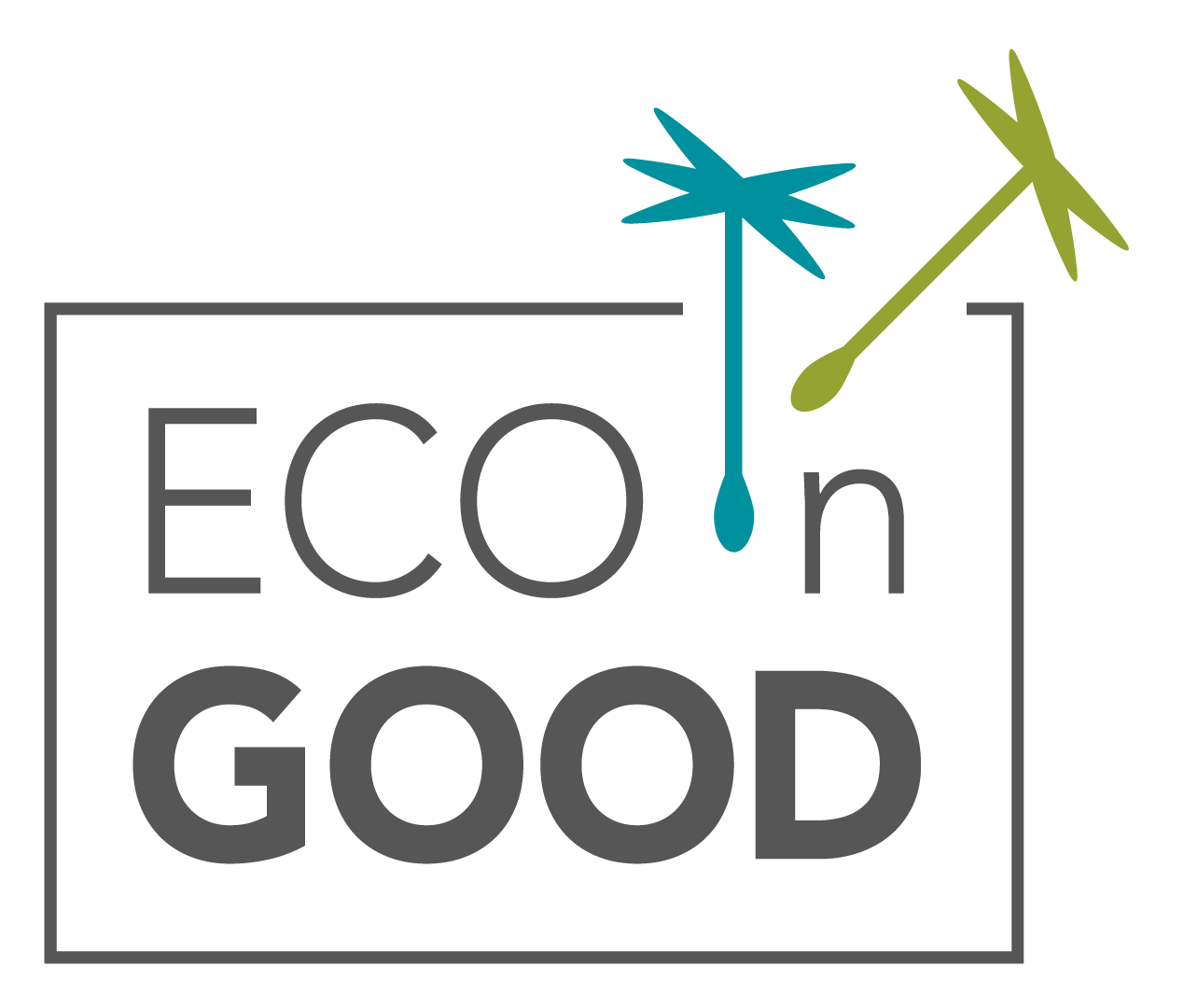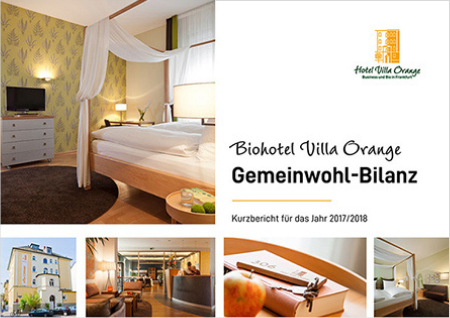Operating a business for the common good
Villa Orange compiles its second Common Good Balance Sheet
A Common Good certificate is not valid forever, and has to be renewed regularly. With this in mind, we started the re-evaluation process in July 2023 and held our fifth workshop in early April. We are happy to share the process with you and report on the topics we discussed. Our colleagues from Naturhotel Tannerhof and Sandra Wacker, an Economy for the Common Good (ECG) consultant, have been supporting us on our path to re-certification. Although this is not an absolute must, it is certainly more fun together and, above all, it broadens all of our horizons.
The Common Good Balance Sheet – what it’s all about
A Common Good Balance Sheet documents how we, as a hotel and a business, incorporate and embody important values such as
Human dignity
Solidarity and social justice
Environmental sustainability
Transparency and co-determination
in our interactions with our suppliers, hotel guests, staff, and in society on a daily basis. First, we draw up a detailed report and substantiate our findings with verifiable values and certificates. We then submit the report to ECG Germany and undergo assessment by an independent auditor with regard to generally applicable criteria. The rating scale ranges from -3,500 to +1,000 points.
Our process
Working with our colleagues from Hotel Tannerhof and ECG consultant Sandra Wacker, we dedicated around eight months to exchanging information and compiling the report. We met for five stakeholder workshops. These workshops form the basis of our reporting and guarantee a full 360-degree look at the business. You can read about the topics we discussed in the stakeholder workshops a bit further down. Next, it is time for each company to complete its report and evaluate itself. We then sign up for an audit and are assessed by an external ECG auditor. If everything goes as planned, we will be able to complete the audit in the summer of 2024.
The Workshops
Stakeholder group E: Social environment
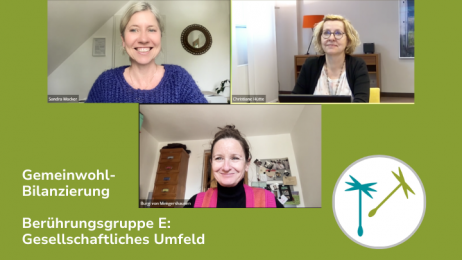
On April 11, 2024, we met online for a four-hour workshop. The photo shows the main participants (from top left to bottom left): Sandra Wacker (ECG consultant), Christiane Hütte (Hotel Villa Orange), and Burgi von Mengershausen (Hotel Tannerhof). Our focus was no longer just on the “what” and “how” of our companies, but above all on the crucial “why.” What visions do the hotels pursue and how do they fit into the social fabric? Do their services contribute to the fulfillment of one or more basic needs? What contribution do they make to society in terms of the individual, the global ecological environment, and humanity as a whole? As both hotels pursue a clear vision and are involved in numerous initiatives, there are many positive things to report.
Stakeholder group D: Customers and other companies
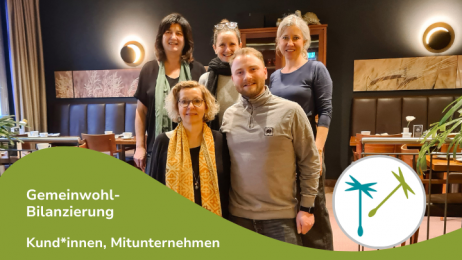
By now, we are really experienced when it comes to stakeholder workshops! We met for the fourth time in mid-February 2024. This time, the focus was on customers and other companies as stakeholders. And after two productive online meetings, we were very happy to meet in person. How transparently do we communicate, do we advertise using unethical measures, or could we even be creating “useless” needs? We talked intensively about our relationships with customers. And if you, dear guests, spontaneously think of something we could improve or something we are doing well, we would be delighted to receive your feedback: by email to Villa Orange, using the feedback form in our hotel rooms, by phone, or in person at the reception desk – we value what you have to say. During the workshop, we also discussed the extent to which we cooperate with other companies and/or support them out of solidarity.
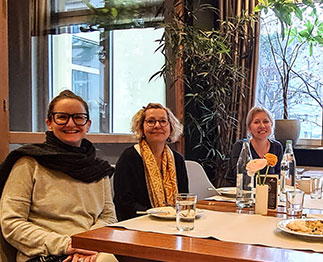
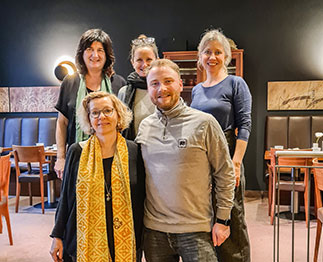
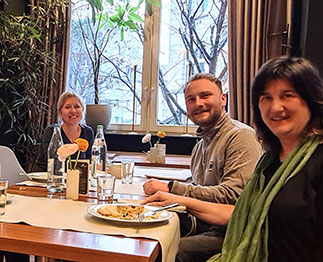
Workshop at Villa Orange in February 2024
Stakeholder group C: Employees
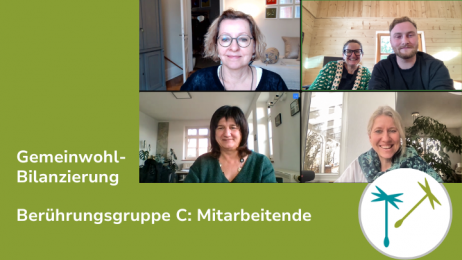
In January 2024, the full focus was on our employees. The Economy for the Common Good is particularly interested in everything we do for and together with our employees that goes beyond the legal requirements. For example, Villa Orange has always paid wages that are higher than the standard pay scale, and there are very flat hierarchies and a high degree of co-determination. There is no need for expensive job advertisements when new positions are created, since the employees themselves “recruit” new employees by making recommendations. For the Common Good Report, we are looking at the 2022 financial year, which was unfortunately still influenced by the effects of Covid-19, and as a result, some employee initiatives had not yet been re-introduced at that point.
Stakeholder group B: Owners and financial partners
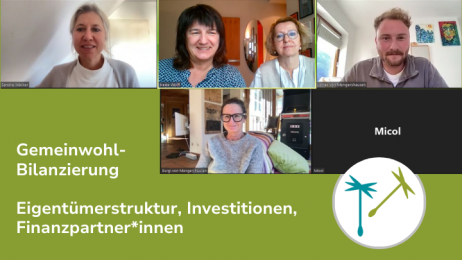
The workshop on finance, investments, and the ethical use of funds took place in late November 2023. Who is prepared to take responsibility for the company, how do we make investment decisions, and what financial partners do we work with? These are questions that we don’t revisit every day, although we do put them to the test as part of our Common Good Balance Sheet.
At Villa Orange, for example, the employees have a say in many decisions, but Christiane Hütte is the sole owner. She bears full responsibility and is liable with her personal assets. The Common Good Report also details how we invest and what financial partners we work with.
Stakeholder group A: Suppliers

In the first stakeholder workshop in October 2023 at the Hotel Tannerhof, we examined the supply chain. What is our relationship with our suppliers like? What do we know about our supply chain and its sustainability aspects? Are there any human rights violations along the supply chain? Do we always choose the most eco-friendly option when purchasing? Who is in a position of power, the client or the supplier? Do we act as equals? A lot of questions, to be sure! This dialogue was very inspiring. When preparing the Common Good Balance Sheet, the discussion with the “Suppliers” stakeholder group is always the most labor-intensive. This was already the case in the first round in 2019, and it continues to be the case with recertification. But together we mastered this challenge well.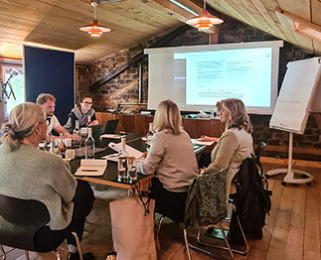

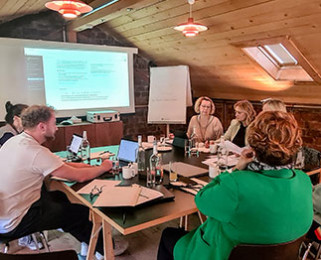
Workshop at Naturhotel Tannerhof in October 2023
A special thanks to Sandra Wacker for the organization and guidance she provided, and to the Tannerhof team for their hospitality and wonderful catering.
Read more – Villa Orange’s first Common Good Balance Sheet
Normally, a company draws up its balance sheet according to profit and loss.
The Common Good Balance Sheet measures economic success according to new standards: Social and ecological aspects of the company are included in the balance sheet. Decisive parameters include values such as human dignity, solidarity and social justice, ecological sustainability, and transparency and co-determination. The Common Good Report with its certificate then documents point by point what the company is doing for the benefit of the community in each specific point. The Common Good Balance Sheet does not replace the financial balance sheet, it complements it. You can read a summary of our first Common Good Balance Sheet (PDF) here.
The industry journal First Class addressed the topic of the Economy for the Common Good in its July 2023 issue. Christiane Hütte explains why she decided to draw up a Common Good Balance Sheet for Villa Orange, what exactly is examined in the process, and why she is now starting the recertification process. You can download the full article as a PDF here.
